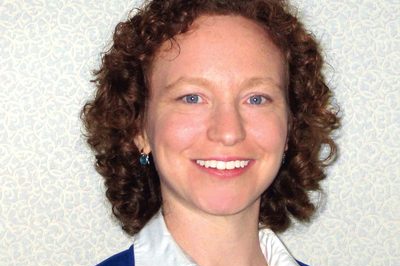I’m not sure what I’d put more money on this year: The Red Sox winning the World Series or marriage equality becoming law in more New England states. In Vermont and New Hampshire, where bills have advanced farthest, the governors have said they will veto them. Each claims that existing civil-union laws provide equal and sufficient protections. That may be true in terms of the literal legalities, but when one looks at the impact of civil unions on children, one sees gaps in those protections.
In the final report of the Vermont Commission on Family Recognition and Protection (April 2008), which evaluated Vermont’s laws relating to same-sex couples and their families, psychologist Kristin Williams Propp stated: “In my [professional] experience with children, the fact that their parents cannot marry and have to have an alternative to marriage sends a very bad message. It is no different than water fountains for ‘Negroes’ and ‘Whites’ 45 years ago. The message is, ‘Your family isn’t good enough and therefore your parents are unable to marry.’ No child should feel inferior because of the gender combination of their parents.”
Farther down the East Coast, a similar report by the New Jersey Civil Union Commission (December 2008) confirmed this position. Judith Glassgold, president of the New Jersey Psychological Association and a faculty member at Rutgers University, asserted that “as a result of the lack of marriage equality, both lesbian, gay and bisexual adolescents and children of same-sex relationships face continued stigma. The stigma has negative mental-health effects.” Testimony from teen and adult children of same-sex parents supported the claim.
Furthermore, several studies in the January 2009 issue of the American Psychological Association’s Journal of Counseling Psychology also found that amendments that restrict civil-marriage rights of same-sex couples have led to higher levels of stress and anxiety among LGBT adults and their families. While no one is talking about removing rights from same-sex couples in Vermont or New Hampshire, it seems no great stretch to say that the defeat of a marriage-equality bill and the confirmation of our separate status would have similar effects.
Laws are not meant to make people feel good about themselves, some may argue. It’s not the state’s fault if they experience stress because of certain rules. Many people feel that way about speed limits, for example.
The counterargument, however, is that the state has always acted to preserve the best interests of children, and should do no less now. Yes, marriage equality is about more than just children. The far right has long tried to focus their efforts on the supposedly negative impact of it on children, however, and it behooves us to counter them on this point.
I have yet to see one example of the child of opposite-sex parents harmed by the marriage of a same-sex couple. Slightly puzzled, perhaps, if they have never encountered same-sex couples before, but harmed, no. Rather, the harm is to the children of same-sex parents if they continue to be told their families have fewer rights than others. If one also counts kids who are LGBT themselves and those who have LGBT relatives or friends, the impact grows wider.
Part of the problem, I believe, is that many non-LGBT people fear having to explain same-sex relationships to their children. There’s that darn problem of “sex” in “sexual orientation” that confuses them. A few may truly feel that same-sex relationships are not an appropriate topic for young ones, but others may simply be nervous because they don’t know how to respond if their child comes home and asks, “How come Johnnie has two moms?”
Forget the sex. Here’s my simple lesson on how non-LGBT people can explain our families to children: “Families come in all different shapes. Johnnie has two moms [or dads] who fell in love and wanted to raise a child, just like we did.” Easy as that.
Parents should also offer examples of family diversity from their own lives, even if they don’t know any same-sex couples. A child may have friends with single parents, or divorced and remarried parents, or a foster parent. These will open children’s minds to the possibility of variety, and chances are they will easily fit same-sex couples into this multifaceted picture.
If the LGBT community and our allies can help people get over their fear of explaining same-sex couples to children, then it will become increasingly clear that civil unions are not equal. “Marriage” is the term that appears in storybooks and Disney films, the exalted state to which characters aspire. Children learn young that it has a special power. When children learn that Johnnie’s moms fell in love and started a family just like our own, the next logical question is: “How come they can’t get married?”
Civil unions may convey equal rights, but they do not convey equal respect. Are we prepared to teach our children that such lack of respect is acceptable? Are we as a country prepared to teach our children that such inequality is enshrined in our laws?
Marriage equality is not just a matter of making children of same-sex parents feel better about themselves, although it will do that. It is not just a matter of appeasing the LGBT constituency. It is a matter of teaching all children the fundamental principles of our democracy.
Dana Rudolph is the founder and publisher of Mombian (www.mombian.com), a blog and resource directory for LGBT parents.
